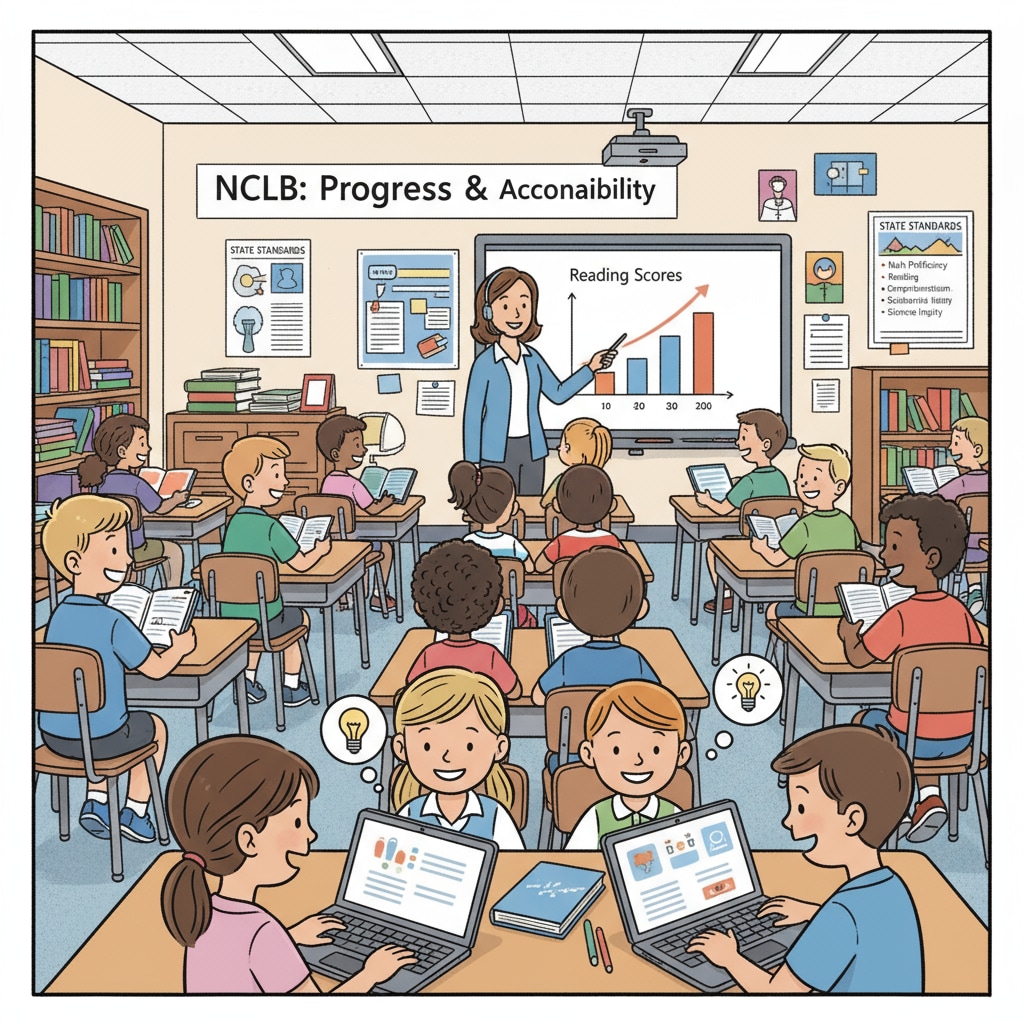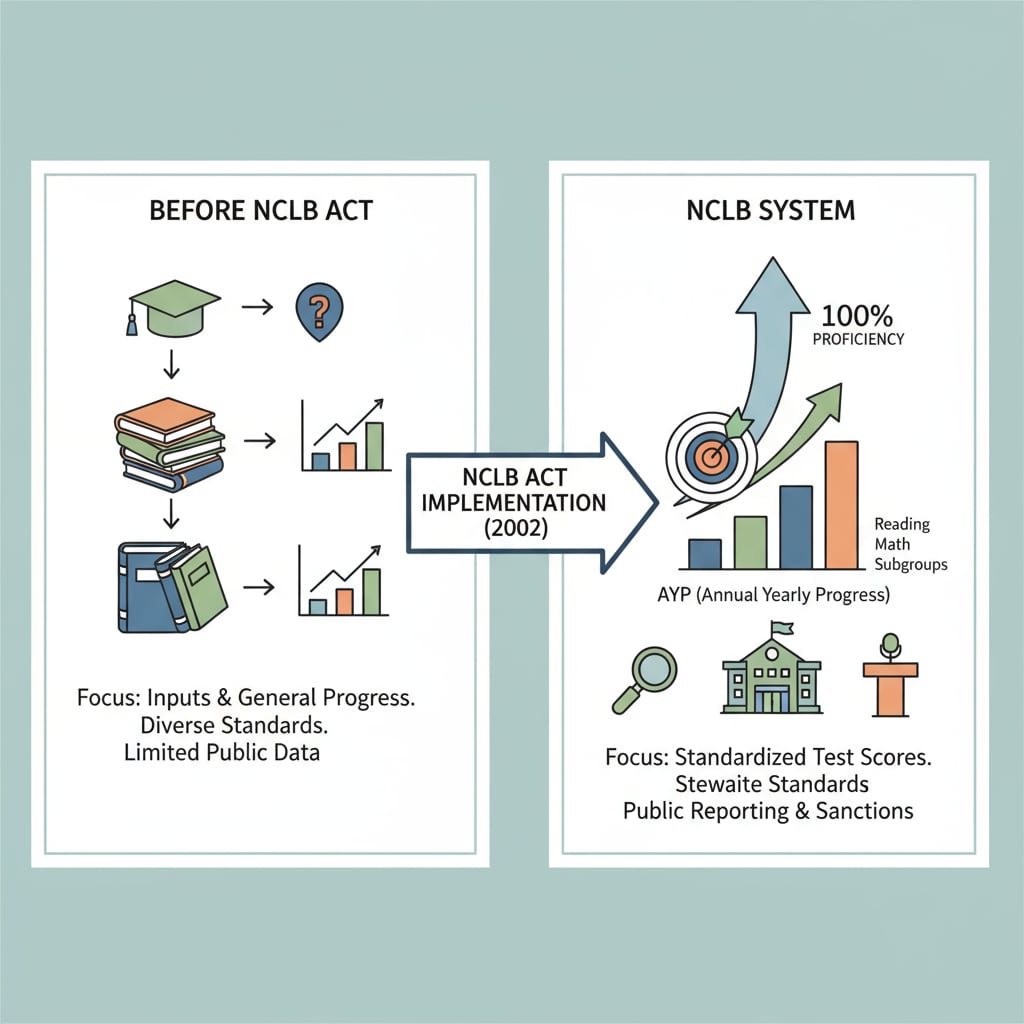The concepts of education accountability, NCLB, and educational transformation have been intertwined in the history of American education. The No Child Left Behind (NCLB) Act, a landmark legislation, has had a far-reaching impact on educational practices and school leadership in the United States. This act, which came into force two decades ago, aimed to raise educational standards and ensure that every child received a quality education.

The NCLB Act and the New Era of Education Accountability
The NCLB Act brought about a significant shift in education accountability. Before NCLB, there was a lack of clear standards and measurements for schools’ performance. However, with the implementation of NCLB, schools were required to meet specific academic targets. For example, they had to achieve a certain level of proficiency in reading and math for all student groups. This led to a more transparent system where schools were held accountable for the educational outcomes of their students. No Child Left Behind Act on Wikipedia

Altered Teaching Practices under NCLB
NCLB also had a major impact on teaching practices. Teachers now had to align their instruction with the standardized tests mandated by the act. As a result, there was an increased focus on test preparation in many classrooms. In addition, teachers had to differentiate their instruction to meet the diverse needs of students, as the act emphasized the importance of closing the achievement gap. This led to the adoption of various teaching strategies, such as small group instruction and individualized learning plans. No Child Left Behind Act on Britannica
The NCLB Act also influenced school leadership. Principals were now responsible for ensuring that their schools met the accountability requirements. They had to manage resources more effectively, hire and train teachers to meet the new standards, and create a school culture that supported academic achievement. School leaders became more data-driven, using student performance data to make decisions about curriculum, instruction, and professional development.
In conclusion, the NCLB Act has been a significant driver of education accountability, educational transformation, and changes in school leadership in the United States. While it has achieved some successes in raising educational standards, it has also faced criticism. However, its impact on the American education system will continue to be felt for years to come. Readability guidance: The article uses short paragraphs to present ideas clearly. Each section under the H2 headings provides a summary of key points. The passive voice is used minimally, and transition words are included to ensure a smooth flow of ideas.


